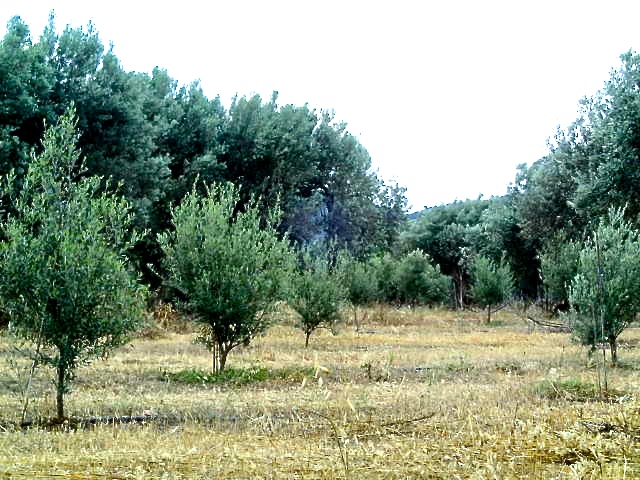
09 Sep The harshness of the summer-Η ΔΥΣΚΟΛΙΑ ΤΟΥ ΚΑΛΟΚΑΙΡΙΟΥ
Various studies indicate that due to a lack of water resources of infrastructure development, most of the world’s olives are grown under dry land conditions. When irrigation is practiced, applied water is far less than potential water use (ETc) of the trees. It is clear that the olive tree is drought tolerant, able to survive under severe water stress, and still produce a crop. However, top quality yields coming from high quality fruit at Rhizoma Olive Farms require supplemental irrigation. The lack of adequate soil water results in plant deficits, that is referred to as water stress. As leaf stomata, the small openings on the underside of olive leaves, open early in the morning in response to sunlight, water vapour moves from the interior of the leaf through the stomata and into the atmosphere. Additionally, leaf stomata are not only the conduits for transpiration but also for carbon assimilation. Carbon dioxide diffuses from the atmosphere through the stomata to the leaf where photosynthesis converts it into sugars, the building blocks necessary for plant and fruit and the fuel that powers plant processes. Empirical data alongside with published papers suggest that reducing carbon uptake and thus photosynthesis will negatively affect one or more plant organs like roots, shoots, branches, leaves, fruit etc. Irrigation at Rhizoma Olive Farms is provided via drip emitters which seem to provide the most efficient result for the climate of Argolida.
